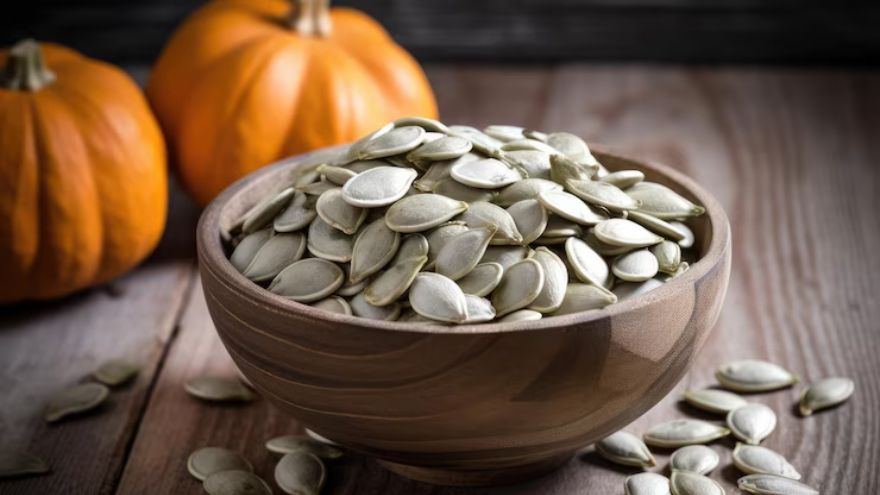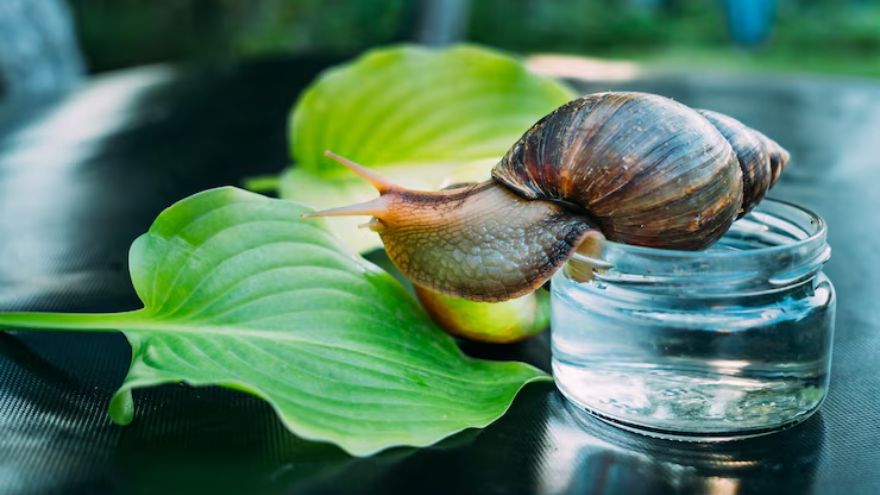
In recent years, spirulina has gained significant popularity as a superfood, and for good reason! This nutrient-dense, blue-green algae is not only rich in vitamins and minerals but also packed with protein and antioxidants. In this blog post, we'll dive deep into what spirulina is, its impressive health benefits, how to incorporate it into your diet, and address some frequently asked questions. By the end, you'll understand why spirulina is considered a nutritional powerhouse and why you might want to consider adding it to your daily routine.
What is Spirulina?
Spirulina is a type of blue-green algae that grows in both fresh and saltwater. It has been consumed for centuries by various cultures around the world. The Aztecs, for example, were known to harvest spirulina from Lake Texcoco in central Mexico. Today, it is cultivated globally and is widely available in powder, tablet, and capsule forms.
The algae get its name from its spiral-shaped, microscopic filaments. Spirulina thrives in alkaline water bodies that are rich in minerals, making it a unique and potent source of nutrition. It is primarily composed of protein—about 60-70% of its dry weight—making it one of the most protein-dense foods available.
Nutritional Profile of Spirulina
Spirulina's impressive nutrient profile is one of the main reasons for its classification as a superfood. Here’s a breakdown of the key nutrients found in spirulina:
1. Protein: Spirulina contains all the essential amino acids, making it a complete protein source. This makes it an excellent option for vegetarians and vegans looking to increase their protein intake.
2. Vitamins: Spirulina is rich in B vitamins, including B1 (thiamine), B2 (riboflavin), and B3 (niacin). It also contains small amounts of vitamin C, D, and E.
3. Minerals: This algae is an excellent source of essential minerals like iron, magnesium, calcium, and potassium. Iron, in particular, is present in a highly absorbable form, which is great for people who are at risk of anemia.
4. Antioxidant: Spirulina contains a powerful antioxidant called phycocyanin, which gives it its blue-green color. Phycocyanin has been shown to help combat oxidative stress and reduce inflammation in the body.
5. Essential Fatty Acids: While spirulina is not a fat-rich food, it does contain some essential fatty acids, including omega-6 and omega-3. These are crucial for brain health and reducing inflammation.
6. Chlorophyll: Spirulina is a rich source of chlorophyll, the green pigment found in plants that helps with detoxification and promotes healthy digestion.
Health Benefits of Spirulina
Thanks to its rich nutritional profile, spirulina offers a wide range of health benefits. Here are some of the most notable:
1. Boosts Immune System: Spirulina is packed with antioxidants and nutrients that help strengthen the immune system. Regular consumption may increase the production of antibodies and other cells that help fight infections and diseases.
2. Enhances Muscle Strength and Endurance: Due to its high protein content and anti-inflammatory properties, spirulina can aid in muscle recovery and enhance endurance. This makes it a great supplement for athletes and fitness enthusiasts.
3. Supports Heart Health: Studies have shown that spirulina can help reduce cholesterol levels, lower blood pressure, and decrease the risk of heart disease. Its anti-inflammatory properties also contribute to overall heart health.
4. Improves Gut Health: Spirulina is easy to digest and can help maintain a healthy gut microbiome. Its high chlorophyll content also aids in detoxification, promoting a clean and healthy digestive system.
5. Aids in Weight Management: Spirulina is low in calories but rich in nutrients, making it an excellent addition to any weight loss or weight management plan. It can help you feel full longer, reducing the temptation to snack on unhealthy foods.
6. Detoxifies the Body: The chlorophyll in spirulina helps remove toxins and heavy metals from the body. This detoxifying effect can help improve overall health and vitality.
7. Reduces Allergic Reactions: Some studies suggest that spirulina can help alleviate symptoms of allergic rhinitis, such as nasal congestion, sneezing, and itching. Its anti-inflammatory properties are believed to be the reason behind this effect.
8. Promotes Eye Health: Spirulina contains high levels of beta-carotene, which is converted into vitamin A in the body. Vitamin A is essential for good vision and overall eye health.
How to Incorporate Spirulina into Your Diet
Incorporating spirulina into your diet is easier than you might think. Here are a few simple ways to enjoy this superfood:
1. Smoothies: One of the most popular ways to consume spirulina is by adding it to smoothies. Simply blend a teaspoon of spirulina powder with your favorite fruits, vegetables, and a liquid base like water, juice, or plant-based milk.
2. Juices: Mix spirulina powder into your morning juice for an added nutritional boost. Its mild taste blends well with citrus juices like orange or pineapple.
3. Energy Balls: You can add spirulina powder to homemade energy balls or bars. Combine it with nuts, seeds, dates, and other ingredients for a tasty and nutritious snack.
4. Salad Dressings: Mix spirulina powder into salad dressings for a unique flavor and added health benefits. Start with small amounts to avoid overpowering the taste.
5. Soups: Add spirulina to soups and broths for an extra nutrient boost. Just be sure to add it towards the end of cooking to preserve its nutritional value.
6. Baked Goods: While not as common, spirulina can be added to baked goods like muffins, pancakes, and bread. This is a great way to sneak in some extra nutrients for picky eaters.
7. Supplements: If you’re not a fan of the taste, spirulina is also available in tablet or capsule form. This makes it easy to get your daily dose without having to mix it into food.
Conclusion
Spirulina is a versatile and nutrient-dense superfood that offers a wide range of health benefits. From boosting the immune system and supporting heart health to enhancing muscle strength and aiding in weight management, spirulina is truly a nutritional powerhouse. Whether you're looking to improve your overall health, support your fitness
FAQs About Spirulina
1. What does spirulina taste like?
Spirulina has a somewhat earthy, grassy taste that can be quite strong for some people. When mixed into smoothies or juices, the flavor is usually masked by the other ingredients. If you're sensitive to the taste, you might prefer taking spirulina in capsule or tablet form.
2. Is spirulina safe for everyone?
While spirulina is generally considered safe for most people, it's important to consult with your healthcare provider before adding it to your diet, especially if you have any underlying health conditions or are pregnant or breastfeeding. Spirulina is not recommended for individuals with autoimmune diseases, as it may stimulate the immune system.
3. How much spirulina should I take daily?
The recommended daily dose of spirulina varies depending on individual needs and the form of spirulina being consumed. Generally, a dose of 1-3 grams per day is considered safe and effective for most people. However, some studies have used doses of up to 10 grams per day. It's best to start with a smaller dose and gradually increase it as your body adjusts.
4. Can spirulina help with weight loss?
While spirulina alone won't make you lose weight, it can be a helpful addition to a balanced diet and healthy lifestyle. Its high protein content can help you feel full longer, reducing the temptation to overeat. Additionally, spirulina is low in calories but rich in nutrients, making it an excellent choice for those looking to manage their weight.
5. Does spirulina have any side effects?
Most people can consume spirulina without any issues. However, some may experience minor side effects such as headaches, dizziness, nausea, or digestive upset. These symptoms are usually temporary and can be minimized by starting with a lower dose and gradually increasing it. If you experience any severe or persistent side effects, discontinue use and consult your healthcare provider.
6. Is spirulina good for athletes?
Yes, spirulina is an excellent supplement for athletes. Its high protein content helps support muscle recovery, while its antioxidants can reduce oxidative stress caused by intense exercise. Spirulina has also been shown to enhance endurance, making it a popular choice for athletes looking to improve their performance.
7. Can spirulina interact with medications?
Spirulina can interact with certain medications, particularly those that affect the immune system. If you are taking any prescription medications, it's important to consult with your healthcare provider before adding spirulina to your diet.
8. How should spirulina be stored?
To preserve its nutritional value, spirulina should be stored in a cool, dry place away from direct sunlight. Keep the container tightly sealed to prevent exposure to moisture and air, which can degrade the quality of the product.
9. Can children consume spirulina?
Spirulina can be safe for children, but it's best to consult with a pediatrician before adding it to their diet. Children's nutritional needs differ from adults, and it's important to ensure they are getting a balanced diet that meets their specific requirements.
10. Is spirulina sustainable?
Yes, spirulina is considered a sustainable food source. It requires less water and land to grow compared to traditional crops and has a relatively low environmental impact. Additionally, spirulina is a renewable resource that can be harvested year-round in many climates.



